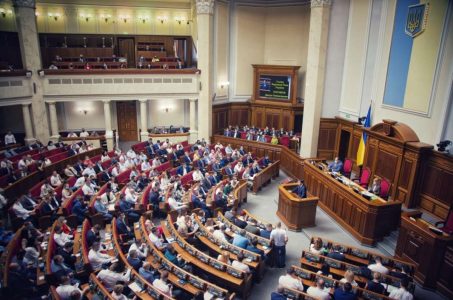Spain Loot Box Regulation Efforts Face Resistance From Trade Group
Posted on: July 4, 2022, 07:41h.
Last updated on: July 6, 2022, 08:35h.
Spain is in the process of determining how and if it wants to regulate loot boxes in video games, because they allegedly promote gambling. It’s an idea that is catching on around the world. But at least one trade group hopes it can block the initiative.

The Government of Spain is strongly considering the regulation of loot boxes, an initiative the current Minister of Consumption, Alberto Garzón, created. As a fan of video games, he has intimate knowledge about how they work. However, at the same time, he’s also a politician that has to follow the political playbook.
Last Friday, Garzon opened the window for public input to determine how Spain proceeds with loot boxes. The Spanish Association of Video Games (AEVI, for its Spanish acronym) hopes to influence the decision.
AEVI José María Moreno said in a statement that there is no scientific evidence linking loot boxes with gambling. If Spain introduces its law, it could have unjustified damage to the industry, he added.
Loot Boxes Become Jill Sandwich
Loot boxes are an issue that worries many undereducated observers because of their similarity to gambling. Their content is random, but they usually include cosmetic objects for games, such as Rocket League, Diablo Immortal, Overwatch or directly virtual cards of FIFA FUT players.
Players can purchase loot boxes with money. But they rarely know what they’re getting until after the purchase. However, the connection to gambling is tenuous at best, because there is always a prize. In addition, players can also purchase loot boxes with in-game points – it isn’t always necessary to buy them with real money.
Courts around the world have debated loot boxes for years, and there is still no consensus. However, in the words of Garzón, loot boxes are a type of content that can lead to “thoughtless, compulsive, or even pathological” consumer behaviors.
The AEVI strongly disagrees. It is even working with its European counterparts in the face of the referral of the draft to the European Commission (EC). AEVI wants to take its opposition directly to the EC.
The main concern of the video game industry is that this law if Spain approves it, supposes a break with European regulatory dynamics. It isolates the Spanish market, harming companies and consumers.
In addition, Moreno maintains that this law is an overreach of the Ministry of Consumer Affairs. He asserted that the initiative is inconsistent with other policies of the same government “that considers the video game industry as an agent of innovation and cultural creation.”
Press “F” to End Game
The window for public feedback closes on July 23. Then, the draft law will be sent to Spain’s General Court to become permanent law.
The Ministry has stated that this law would only strictly affect the loot boxes, or as they have specifically said, “only and exclusively” to the Random Reward Mechanisms (MAR) or loot boxes.” It applies to those cases in which players acquire them for real money, or through a virtual currency that the loot boxes may provide.
This will impact two revenue streams. One is the loot box segment. The second is the third-party reseller segment that sells outside the video game, such as those that have FIFA Ultimate Team coins for sale. The government also wanted to make it clear that video games are not equated with MAR, which it says are mainly games of chance.
The law will prohibit the access of minors to them, thanks to a process of documentary verification through Spain’s national ID registration. At the same time, for those over 18 years of age, it will be possible to limit spending partially or totally.
Meanwhile, the companies themselves will have to show the possibilities of getting one object or another in each box – no more random results. In addition, video game advertising will follow the same guidelines as that of the sports betting market.
The Netherlands could join the initiative of Spain and several European countries to regulate the use of loot boxes. As reported by media outlet VGC, at least six Dutch political parties have agreed to support a law that would directly ban loot boxes inside games.
Related News Articles
Ukraine Gaming Operators Frustrated as Government Delays on New Tax Structure
Did Brexit Referendum Cause Bitcoin Plunge?
Insiders Say No-Go on Florida Sports Betting This Year
Most Popular
Genovese Capo Sentenced for Illegal Gambling on Long Island
NBA Referees Expose Sports Betting Abuse Following Steve Kerr Meltdown
UPDATE: Former Resorts World & MGM Grand Prez Loses Gaming License
VEGAS MYTHS RE-BUSTED: The Traveling Welcome to Las Vegas Sign
Most Commented
-
UPDATE: Whiskey Pete’s Casino Near Las Vegas Closes
— December 20, 2024 — 32 Comments -
Caesars Virginia in Danville Now Accepting Hotel Room Reservations
— November 27, 2024 — 9 Comments -
UPDATE: Former Resorts World & MGM Grand Prez Loses Gaming License
— December 19, 2024 — 8 Comments -
FTC: Casino Resort Fees Must Be Included in Upfront Hotel Rates
— December 17, 2024 — 7 Comments
















No comments yet